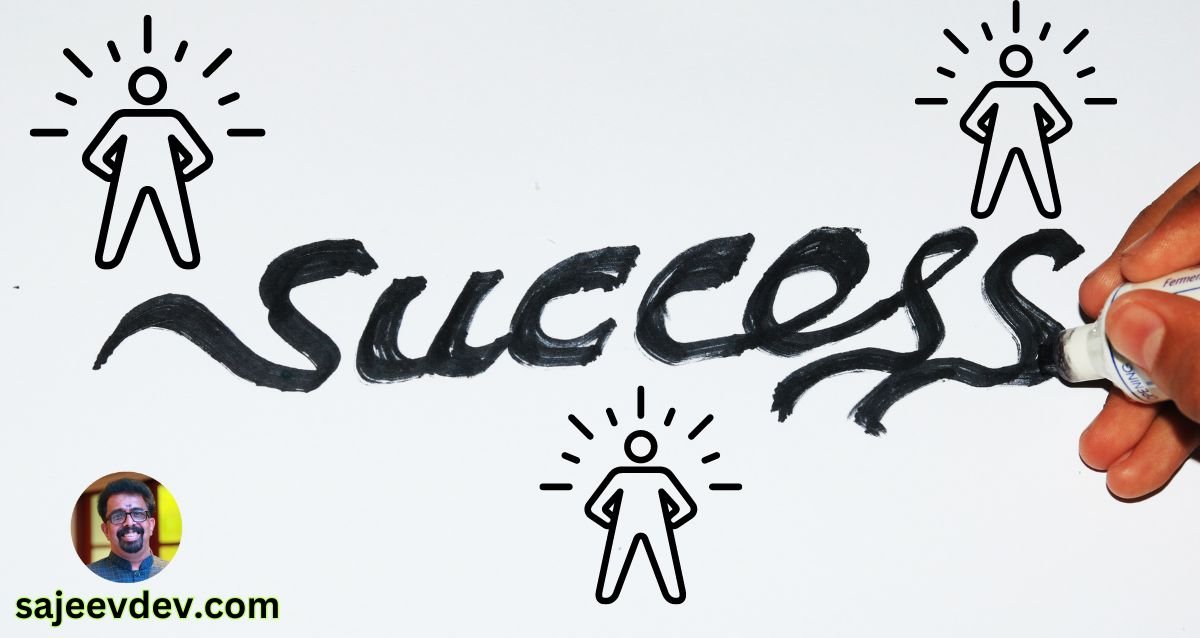Self-belief is a fundamental aspect of human psychology that significantly influences an individual’s ability to achieve success
Self-belief is a fundamental aspect of human psychology that significantly influences an individual’s ability to achieve success. It refers to the confidence one has in their own abilities and judgment. This intrinsic belief serves as the cornerstone for personal and professional advancements, empowering individuals to take initiatives and confront challenges head-on. It is critically important to recognize that self-belief is more than just passive confidence; it is an active, dynamic force that shapes how we perceive ourselves and our potential.
The journey towards success is often marked by obstacles and setbacks. During these challenging times, a strong sense of self-belief can act as a vital motivator. When individuals believe in their capabilities, they are more likely to pursue their goals relentlessly, embrace learning experiences, and adapt to change. This mindset not only fuels resilience but also enables individuals to bounce back from failures, viewing them as mere stepping stones rather than insurmountable barriers. Therefore, cultivating self-belief is essential for sustaining motivation and optimism throughout one’s endeavors.
Moreover, self-belief plays a crucial role in setting the stage for future achievements. Individuals who trust in their skills are better equipped to take risks and seize opportunities that others might shy away from. They enter situations with a positive outlook, which enhances their likelihood of success. This belief in oneself promotes a growth-oriented mindset, where individuals recognize their potential to develop further, fostering a continuous cycle of improvement and achievement.
In summary, self-belief is not just a passive state of mind; it is an empowering force that influences our actions and decisions. By nurturing self-belief, individuals can unlock their true potential and pave the way toward meaningful success.
The Connection Between Self-Belief and Success
Self-belief serves as a fundamental pillar of success across various domains, influencing not only motivation levels but also the determination to overcome challenges. Numerous studies indicate a strong correlation between individuals’ belief in their abilities and their success rates. For instance, research published in the Journal of Applied Psychology revealed that self-efficacy, a concept closely tied to self-belief, significantly affects performance outcomes in both academic and professional settings. Participants with higher self-efficacy demonstrated improved persistence and resilience, traits essential for navigating obstacles and achieving goals.
Consider the case of successful entrepreneurs, such as Howard Schultz, former CEO of Starbucks. Schultz’s journey underscores the impact of self-belief on professional growth. Initially facing rejection while attempting to gain financial backing for his business vision, his unwavering confidence enabled him to secure opportunities that ultimately transformed Starbucks into a global brand. Schultz’s story exemplifies how self-belief can cultivate perseverance, motivating individuals to pursue their objectives despite adversities.
Furthermore, expert opinions reinforce the importance of believing in oneself. Psychologist Dr. Carol Dweck, known for her work on mindset, emphasizes that individuals with a growth mindset—an inherent belief in their ability to develop skills—tend to achieve higher levels of success than those with a fixed mindset. Dr. Dweck expounds that this belief fosters a willingness to embrace challenges and learn from failures, promoting a continuous cycle of self-improvement.
Statistical data supports these findings, as Gallup reported that individuals with high self-belief are 3.3 times more likely to be engaged at work. This engagement directly correlates to increased productivity and success rates within various fields. Evidently, nurturing self-belief is not only beneficial but essential for unlocking one’s potential and achieving long-term success.
Common Barriers to Self-Belief
Self-belief is a critical component of personal development and success, yet many individuals find themselves facing significant barriers that hinder their confidence. One of the most prevalent obstacles is the fear of failure. This fear often stems from previous negative experiences or deep-rooted anxiety about not meeting expectations, either set by oneself or imposed by others. As a result, individuals may avoid taking risks or pursuing opportunities that could lead to growth, thereby reinforcing their self-doubt.
Another common barrier to self-belief is negative self-talk. Many people engage in a mental dialogue that is overwhelmingly critical and dismissive of their strengths and achievements. This internal narrative can be fueled by societal norms and standards that promote unrealistic comparisons with others. When individuals repeatedly tell themselves they are inadequate or unworthy, it becomes increasingly challenging to cultivate a positive self-image and belief in their capabilities.
External judgments also play a significant role in undermining self-belief. The influence of peers, family, and society can create pressure to conform to certain ideals, leading individuals to question their authenticity and abilities. Negative feedback and criticism can be particularly damaging, prompting individuals to internalize these judgments and further erode their confidence.
Recognizing these barriers is the first step toward overcoming them. Individuals can benefit from practicing self-compassion and reframing negative thoughts into more constructive perspectives. Surrounding oneself with supportive and encouraging individuals can also mitigate the impact of external judgments. Furthermore, challenging the notion of failure by viewing it as a learning opportunity can foster resilience and enhance self-belief.
By understanding and addressing these common barriers, individuals can take significant strides toward unlocking their potential and building a robust sense of self-belief.
Cultivating Self-Belief: Strategies and Techniques
Developing and nurturing self-belief is crucial for unlocking one’s potential. Several strategies and techniques can prove effective in cultivating this essential trait. One of the most impactful methods is visualization. By mentally picturing oneself achieving goals and overcoming challenges, individuals can enhance their self-confidence. Visualization creates a powerful mental image that reinforces the belief that success is attainable, thereby fostering a positive mindset.
Another practical technique involves setting small, achievable goals. Breaking larger objectives into manageable tasks allows individuals to experience a series of small victories, which can significantly boost self-belief. Each accomplished goal serves as a building block, reinforcing the idea that they are capable and competent. These incremental successes contribute to a more profound sense of empowerment and encourage individuals to tackle more significant challenges.
Additionally, utilizing affirmations can play a pivotal role in cultivating self-belief. Affirmations are positive statements that individuals repeat to themselves, helping to challenge negative thoughts and self-doubt. By integrating affirmations into daily routines, one can gradually shift their mindset, paving the way for a stronger belief in their abilities. This practice can be particularly effective when affirmations are tailored to resonate with personal aspirations and goals.
Surrounding oneself with supportive influences is another vital strategy in cultivating self-belief. Engaging with positive and encouraging individuals can create a reinforcing environment that nurtures self-worth. This support system can act as a buffer against self-doubt and negativity, providing encouragement and perspective when challenges arise. By deliberately choosing to engage with uplifting individuals, one can strengthen their belief in themselves and their potential.
Through the implementation of these strategies—visualization, goal-setting, affirmations, and a supportive network—individuals can effectively cultivate self-belief, fostering an environment ripe for personal growth and achievement.
The Role of Positive Mindset in Self-Belief
A positive mindset is integral to cultivating self-belief, serving as the foundation upon which confidence and resilience are built. Individuals who foster an optimistic outlook are better equipped to navigate life’s challenges, as they view obstacles not as insurmountable barriers but as temporary setbacks that can be overcome. This shift in perception is crucial, as it empowers individuals to remain focused on their goals, thus reinforcing their self-efficacy and belief in their capabilities.
Optimism encourages a proactive approach to problem-solving; when faced with difficulties, those with a positive mindset actively seek solutions rather than dwelling on negatives. This resilience becomes a key characteristic of high achievers, enabling them to adapt and respond constructively to failure. For instance, rather than perceiving a failed attempt at a task as a definitive judgment on their abilities, an optimistic person is more likely to view the experience as an opportunity for learning and growth. This perspective not only bolsters their confidence but also enhances their commitment to future endeavors.
Moreover, maintaining a positive mindset can significantly influence one’s behavior and interactions with others. Individuals who exude positivity often inspire and uplift those around them, creating an environment that fosters collaboration and encouragement. This social support network is vital, as it further enhances self-belief, making it easier for individuals to pursue challenging goals. Consequently, this interconnectedness between self-belief and a positive mindset creates a self-reinforcing cycle: the more optimistic an individual becomes, the stronger their belief in themselves grows, resulting in a more fulfilling and successful pursuit of their aspirations.
Real-Life Success Stories: Self-Belief in Action
Throughout history, numerous individuals have illustrated the profound impact of self-belief on achieving remarkable success, often in the face of significant challenges. One such example is J.K. Rowling, the author of the Harry Potter series. Before finding worldwide fame, Rowling faced numerous rejections from publishers and struggled in her personal life as a single mother living on welfare. Despite these hardships, her unwavering belief in her story and her abilities as a writer helped her persevere. Today, Rowling is not just a renowned author but a beacon of hope for those believing in themselves despite obstacles, showing how self-belief can lead to phenomenal achievements.
Another notable example is Oprah Winfrey, who has become one of the most influential media figures globally. Oprah’s early life was fraught with difficulties, including poverty and abuse. Nevertheless, she believed in her capacity to shape her future and sought opportunities to rise above her circumstances. Through her determination and self-belief, she transformed her life from a troubled childhood to becoming a celebrated talk show host, philanthropist, and entrepreneur, inspiring millions along the way.
Similarly, Thomas Edison exemplified the power of self-belief in innovation. Frequently facing failure in his experiments, Edison maintained a steadfast belief in his vision of creating a functioning light bulb. His famous quote, “I have not failed. I’ve just found 10,000 ways that won’t work,” encapsulates the essence of self-belief. Edison’s persistence led to groundbreaking inventions that revolutionized the world, proving that self-belief can catalyze significant advancements in multiple fields.
These stories highlight the transformative power of self-belief. Contemplating their journeys inspires others to recognize their potential and understand that self-belief is often the first step toward realizing one’s dreams.
Using Affirmations to Boost Self-Belief
Affirmations serve as a powerful tool for individuals looking to enhance their self-belief and foster a more positive self-image. By employing positive statements that reflect one’s goals and desires, individuals can effectively reshape their thought patterns and reinforce their belief in their personal capabilities. The process begins with identifying limiting beliefs and replacing them with empowering affirmations that align with one’s aspirations.
When practiced regularly, affirmations can significantly alter the subconscious mind, allowing individuals to break free from self-doubt and negativity. For instance, instead of saying “I am not good enough,” a more constructive affirmation would be “I am capable and deserving of success.” This shift in language is not merely a semantic change; it nurtures a positive mindset that opens the door to greater possibilities and achievements.
To incorporate affirmations into daily life, it is beneficial to choose specific phrases that resonate personally. This could include statements such as “I believe in my abilities,” “I am strong and resilient,” or “I can achieve my dreams.” Regular repetition of these affirmations, whether spoken out loud, written down, or visualized, can enhance their impact and solidify the belief in one’s potential.
Moreover, it can be advantageous to set aside time each day for affirmation practice, integrating it into morning routines or evening reflections. This consistent engagement helps to create a mental environment filled with positivity and self-encouragement. Over time, the practice of using affirmations not only boosts self-belief but also serves as a foundation for personal growth, enabling individuals to unlock their full potential.
Maintaining Self-Belief Through Challenges
Self-belief serves as a cornerstone of personal and professional success, but maintaining it can be particularly challenging when confronted with adversity. It is essential to cultivate resilience, a quality that enables individuals to recover from setbacks and continue pursuing their goals. One key strategy for sustaining self-belief during tough times is the adoption of a growth mindset. This concept, popularized by psychologist Carol Dweck, posits that abilities and intelligence can be developed through dedication, hard work, and the willingness to learn from failures. Embracing a growth mindset allows individuals to view challenges not as insurmountable obstacles but as opportunities for growth and development.
Another critical approach involves developing effective coping mechanisms that can anchor self-belief in times of stress. Engaging in mindfulness practices, such as meditation and deep breathing exercises, may help individuals remain grounded and centered, reducing feelings of anxiety and self-doubt. Additionally, journaling thoughts and emotions can provide clarity and serve as a platform for reflection, helping to reinforce a positive self-image. Surrounding oneself with supportive individuals, whether friends, family, or mentors, is also vital. These relationships can provide encouragement and perspective, bolstering one’s confidence during difficult moments.
Moreover, setting realistic and achievable goals allows individuals to experience success incrementally, fostering a sense of accomplishment that nurtures self-belief. By breaking down larger objectives into smaller, manageable tasks, one can celebrate victories along the way, reinforcing confidence and motivating continued effort. It is also important to be compassionate toward oneself; recognizing that obstacles are a natural part of any success journey can relieve undue pressure and promote a healthier self-assessment.
In conclusion, sustaining self-belief in the face of challenges requires a multifaceted approach that includes adopting a growth mindset, developing coping mechanisms, fostering supportive relationships, and setting achievable goals. By employing these strategies, individuals can enhance their resilience, ensuring that self-belief remains a driving force in their pursuits regardless of adversity.
The First Step Towards Success
In light of the discussions presented throughout this article, it is clear that self-belief serves as the cornerstone of achieving success. The journey towards unlocking one’s potential begins with the understanding that belief in oneself can significantly impact all aspects of life, ranging from personal aspirations to professional endeavors. Acknowledging one’s skills and capabilities fosters an environment conducive to growth, allowing individuals to pursue their goals with confidence.
Furthermore, cultivating self-belief not only boosts motivation but also enables resilience in the face of challenges. As individuals venture towards their ambitions, they are likely to encounter obstacles that test their resolve. However, those who possess a strong sense of self-belief are more equipped to navigate these hurdles, viewing them as opportunities for learning rather than insurmountable barriers. Thus, nurturing a mindset rooted in self-appreciation encourages a proactive approach toward overcoming difficulties.
It is equally essential to take actionable steps that align with one’s goals. Setting realistic objectives, breaking them down into manageable tasks, and celebrating small successes along the way can reinforce one’s self-belief. Moreover, seeking support from mentors or peers can provide additional motivation and constructive feedback, further enhancing the belief in one’s abilities.
In summary, embracing self-belief forms the first step toward achieving success and unlocking one’s full potential. By recognizing and harnessing this foundational aspect, individuals can embark on a journey filled with possibilities. As you move forward, remember that your potential is vast, and cultivating a firm belief in yourself is crucial for transforming dreams into tangible achievements. Embrace your journey and take each step with the confidence that success begins with you.



